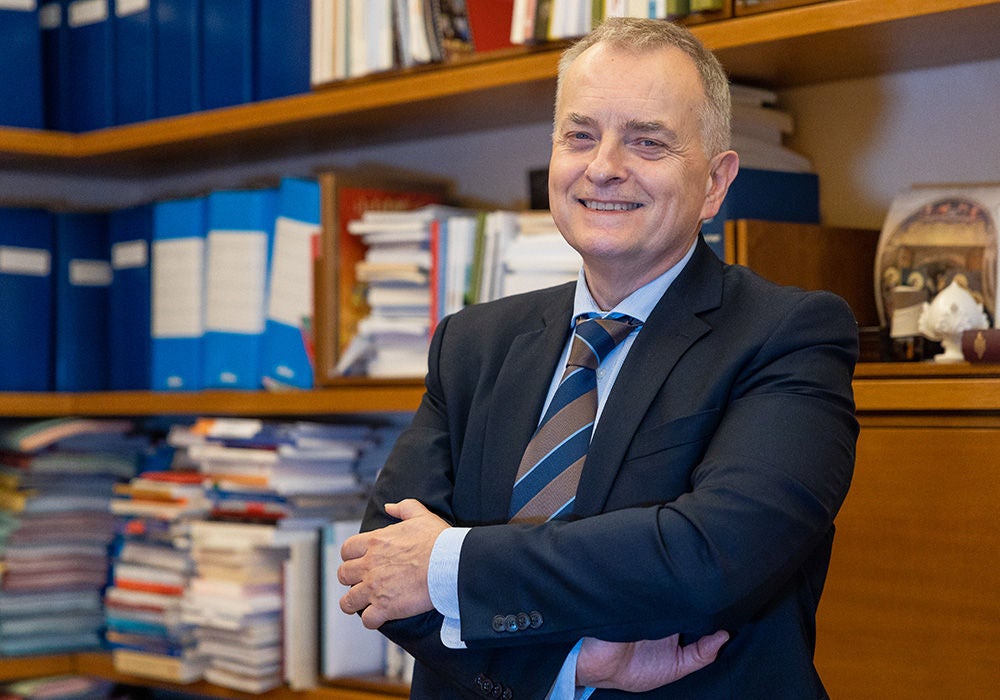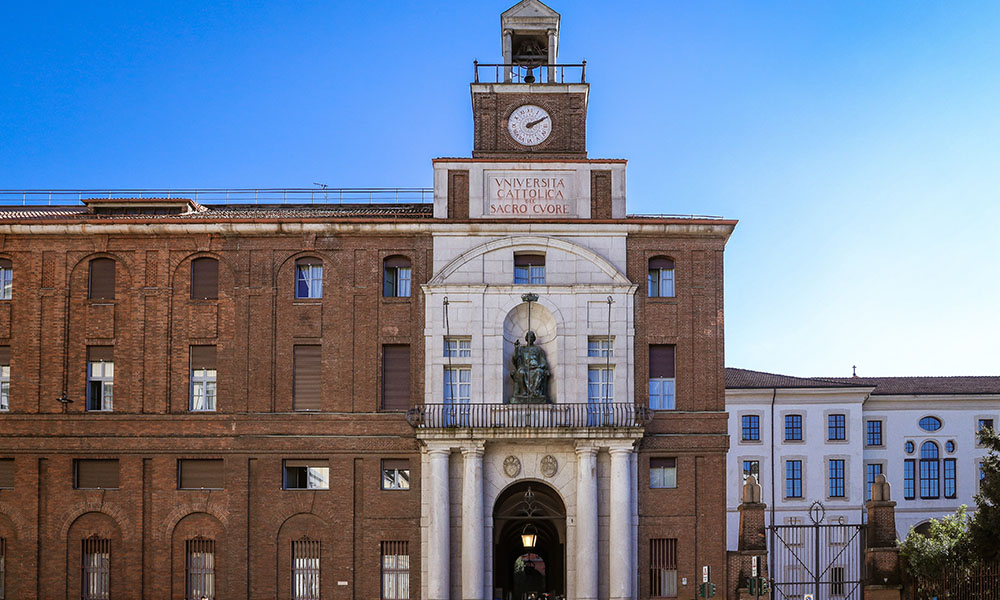Linguistic Sciences and Foreign Literatures

Dean: Prof. Giovanni Gobber
The Faculty of Linguistic Sciences and Foreign Literatures at Università Cattolica offers training that combines a passion for the languages and cultures of foreign countries with the acquisition of business, tourism, communication and international relations skills. A project in step with the rapid and intense changes in the global context in the cultural, social and professional fields.
Every language is a culture. [...] The real loss could lie in monoculture - whatever it may be - in the loss itself of cultural pluralism - since only pluralism is the bearer of comparison, of fruitful dialectics, of cultural creativity, of civil richness immanent in the field of language formation.
In the academic year 1991-92, the Faculty of Foreign Languages and Literatures was established at Università Cattolica. Thus an innovative project took shape that would be taken up in many Italian universities: it envisages that language learning and the study of linguistic and literary sciences be integrated with disciplines that investigate various areas – business, tourist flows, international relations, mass-media, audiovisual and digital communication – promoting an effective specialization of linguistic and cultural skills. The need to reaffirm the scientific profile – both theoretical and applied – of the courses taught motivated the change of name, which since the academic year 2002-03 has been the Faculty of Linguistic Sciences and Foreign Literatures.
The educational project has been developed in harmony with an ancient and always vital tradition, which aims at the integral development of the person in study and in life: the identity of Università Cattolica is constitutive of our Faculty and its courses of study, in which teaching and cultural and scientific training are oriented towards the preparation of professional figures capable of intervening effectively in work contexts where qualified competence is required in the fields of study. languages and in the management of intercultural dynamics.
The constant evolution of the world of work, with the development of new sectors and new professional profiles, is closely followed by the Faculty, which is always ready to adapt its educational offer (both in terms of the content of the study paths and their organization) to the needs of companies, organizations and institutions, in which future graduates will be called upon to work.
Multilingualism and an international perspective are constitutive of the very nature of the Faculty. From the outset, it has been oriented towards dialogue and scientific and educational discussion at an international level, even before the Italian university environment, urged by the European institutions, promoted the mobility of students and teachers.
Provincialism is incompatible with a Faculty that teaches learning and knowledge of languages and cultures: also for this reason, the Faculty promotes awareness of the immense heritage contained in the Italian language, which for the vast majority of our students is the first language. On closer inspection, you can't learn other languages if you don't know your own inside out.
The Faculty offers:
- a high-level language training guaranteed by a teaching nucleus, which constitutes the backbone of the Faculty and which takes the form of in-depth practical learning of two foreign languages, with particular attention to the linguistic and cultural specificities of the various countries;
- the choice of the following languages: French, English, Russian, Spanish, German. Chinese and Arabic languages are offered for the interfaculty degree programme in Linguistic Sciences for International Relations; Arabic is also offered for all profiles of the undergraduate degree and for all profiles of the graduate degree in Linguistic Sciences; the Chinese language is also offered for the profile in Languages for Business of the undergraduate degree and for all the profiles of the graduate degree in Linguistic Sciences, in continuity with the degree;
- different profiles that integrate linguistic and literary skills with knowledge in specific areas: from literary to publishing and cultural fields; from marketing and business management to new international institutions and agencies; from activities related to tourism to those related to communication management and creative and media production. As evidenced by the periodic surveys conducted among the University's graduates, these profiles ensure rapid integration into the world of work.
I believe that the contemporary university, while it has the duty to collaborate for the progress of the sciences and to follow the methodology required by each of them, must never put in second place what requires the recognition of its primacy, that is, man, the human person, the world of spirituality



